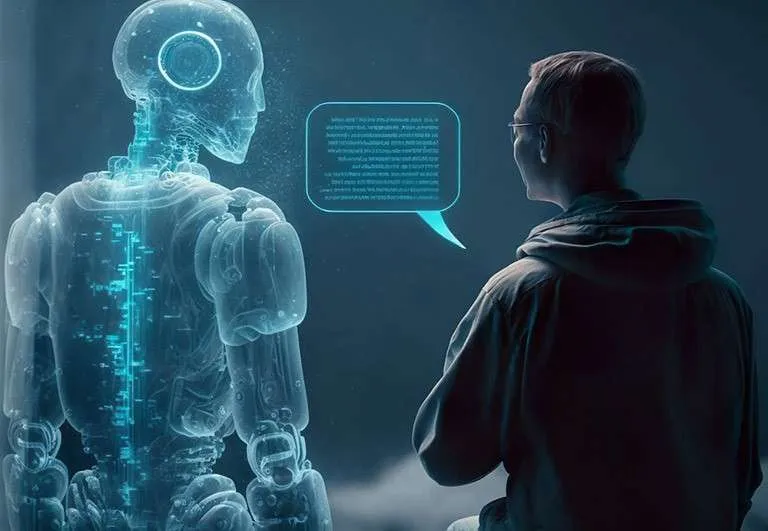The Confluence of Technology and Human Existence
I am convinced we’re on the cusp of the most important transformation of our lifetimes.… The coming wave is going to change the world…. Ultimately, human beings may no longer be the primary planetary drivers, as we have become accustomed to being. We are going to live in an epoch when the majority of our daily interactions are not with other people but with AIs. This might sound intriguing or horrifying or absurd, but it is happening.
Mustafa Suleyman
“Artificial Intelligence is not merely a field of computer science; it is a factor shaping the terrain on which we must solve humanity’s grand challenges,” writes Mustafa Suleyman in his alarming work, The Coming Wave (Suleyman & Bhaskar, 2023). To better consider the depth of Suleyman’s urgent signal for an immediate, unprecedented halting to business as usual, I will give you glimpses of Sunyan’s thoughts, provide an ethical context for us to discuss AI in behavioral health through David Luxton’s groundbreaking book, Artificial Intelligence in Behavioral and Mental Health Care (Luxton, 2015), and round out the discussion with comments from Eric Topol and Scott Shapiro, two well-respected literary reviewers. They mirror Suleyman’s view of how ubiquitous AI is and how it will easily eclipse any technology created before now. They, however, raise different flags about AI’s future and whether it will bring a promise or a peril for behavioral health professionals.”
AI’s Impact on Civilization is Compared to Fire, Agriculture & the Printing Press
Suleyman’s analogy of AI being akin to the discovery of fire and agriculture is a thought-provoking comparison highlighting artificial intelligence’s profound impact on human civilization. In this context, he parallels AI and significant milestones in human history. To extend this analogy, we can liken AI to another transformative discovery: the invention of the printing press.
Here’s a detailed explanation:
Fire: Fire was a pivotal discovery in human history. It provided warmth, protection, and the ability to cook food, improving nutrition and energy efficiency. Similarly, AI has the potential to provide significant benefits by automating tasks, optimizing processes, and enhancing decision-making in various fields.
Agriculture: The development of agriculture marked the shift from nomadic hunting and gathering societies to settled communities engaged in farming. It ensured a stable food supply, enabling population growth and the emergence of advanced civilizations. Similarly, AI is revolutionizing industries by increasing productivity, enabling precision agriculture, and fostering economic growth.
The Printing Press: The invention of the printing press by Johannes Gutenberg in the 15th century revolutionized communication and knowledge dissemination. It made books more accessible, fostering the spread of ideas, science, and culture. AI, through its ability to analyze vast amounts of data and generate insights, is reshaping information sharing and decision support in a manner comparable to the impact of the printing press.
Just as fire, agriculture, and the printing press transformed human society, AI has the potential to reshape our world in unprecedented ways. It can optimize healthcare, transportation, finance, and many other sectors, leading to greater efficiency, innovation, and quality of


